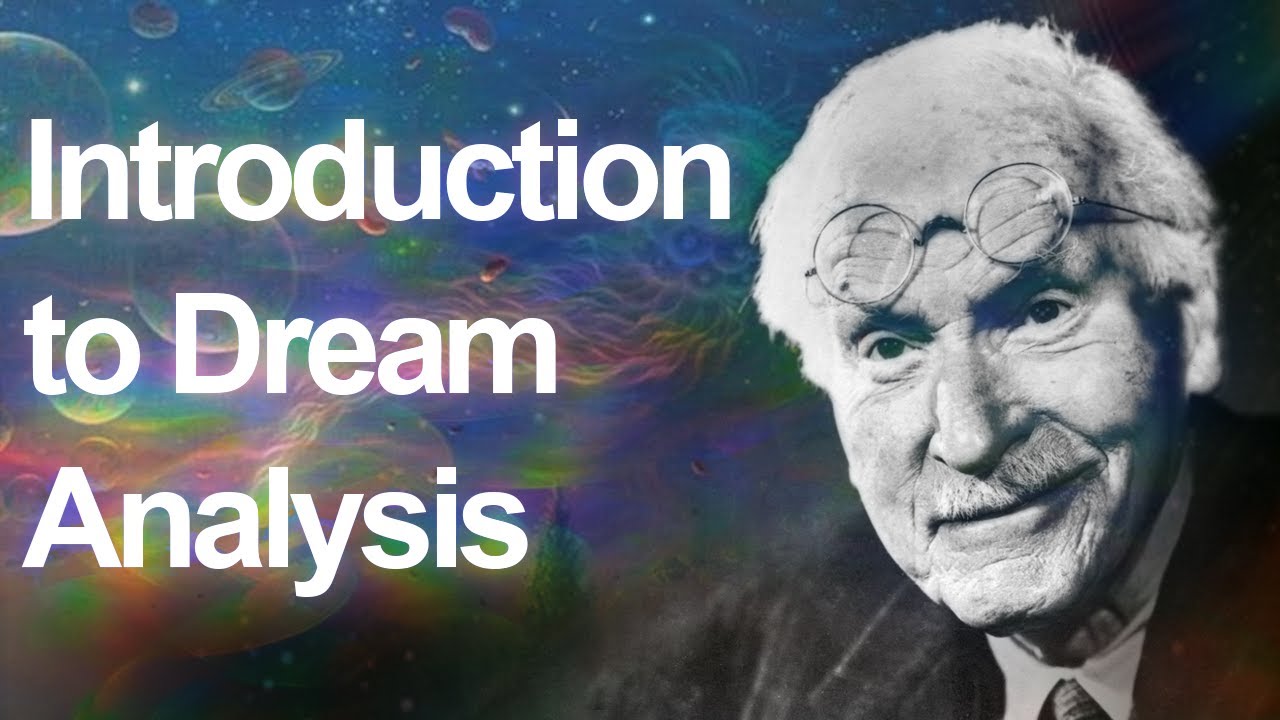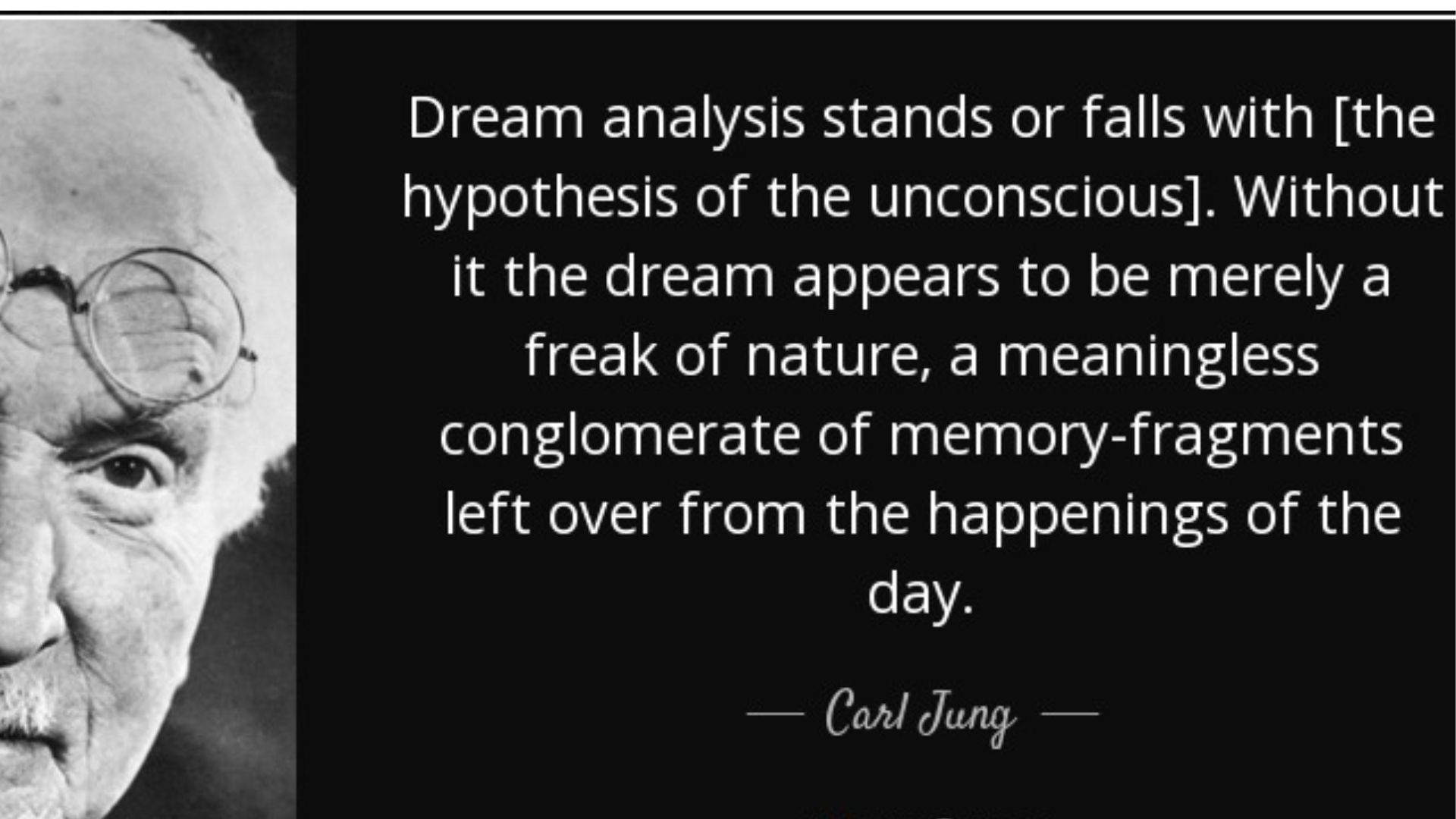Jungian Dream Analysis - The Hidden Messages Of The Unconscious Mind
Among the various approaches to dream interpretation, Jungian Dream Analysis stands out as a powerful tool for unraveling the symbolic language of dreams and accessing the depths of our psyches.
Author:Georgia AshcroftReviewer:Ava MartinezMay 29, 2023114.5K Shares1.8M Views

Among the various approaches to dream interpretation, Jungian Dream Analysisstands out as a powerful tool for unraveling the symbolic language of dreamsand accessing the depths of our psyches.
Developed by renowned Swiss psychiatrist Carl Jung, this method delves into the profound meanings and archetypal motifs embedded in our dreams. By recognizing dreams as windows into the unconscious mind, Jungian Dream Analysis offers a pathway to explore the hidden aspects of our personalities, unresolved conflicts, and untapped potentials.
The Origins Of Jungian Dream Analysis
Carl Jung, a disciple of Sigmund Freud, developed his own psychoanalytic theories, which focused on the exploration of the collective unconscious and the importance of symbols in understanding the human psyche.
While Freud primarily viewed dreams as a pathway to the unconscious mind and the fulfillment of repressed desires, Jung expanded this perspective to encompass a broader range of symbolic elements and archetypes.
Understanding The Unconscious - A Journey Into The Psyche
Unraveling the mysteries of the unconscious mind is a fascinating journey that leads to profound self-discovery.
The Structure Of The Psyche
Jungian Dream Analysis begins with an understanding of the structure of the psyche, which Jung divided into three distinct levels: the conscious, the personal unconscious, and the collective unconscious.
The conscious mind represents our immediate awareness, while the personal unconscious holds forgotten or repressed memories. However, it is the collective unconscious that holds the key to the universality of symbols and archetypes found in dreams.
The Language Of Dreams
According to Jung, dreams serve as a means of communication between the conscious and unconscious realms. They are rich in symbols and images that reflect our deepest fears, desires, and unresolved conflicts. Jungian Dream Analysis seeks to decipher this symbolic language by exploring the underlying themes, recurring motifs, and archetypal figures present in dreams.
The Process Of Jungian Dream Analysis
Embarking on the journey of Jungian Dream Analysis involves a systematic and insightful approach to unravel the hidden messages within our dreams. By understanding the process and techniques employed, individuals can navigate the intricate landscape of their unconscious mind and gain profound insights into their psyche and personal growth.
Recording And Recalling Dreams
To begin the process of Jungian Dream Analysis, it is essential to establish a regular practice of recording and recalling dreams. Keeping a dream journal helps to capture the details and emotions experienced during dream states, providing valuable material for analysis.
Amplification - Unveiling The Symbolic Meaning
Amplification is a technique used in Jungian Dream Analysis to unravel the symbolic meaning of dream elements. It involves exploring the broader cultural, historical, and mythological contexts associated with symbols and archetypes present in dreams. By examining these connections, a deeper understanding of the dream's message can be achieved.
Active Imagination - Engaging With Dream Figures
Active Imagination is a powerful tool in Jungian Dream Analysis that involves consciously engaging with dream figures and symbols. By entering into a dialogue with these dream personas through visualization and imagination, individuals can gain insight into their unconscious motivations, conflicts, and desires.
The Significance Of Archetypes In Jungian Dream Analysis
Archetypes hold a pivotal role in Jungian Dream Analysis, as they represent universal patterns and symbols deeply ingrained in the collective unconscious. Understanding the significance of archetypes unlocks the key to deciphering the profound messages and hidden meanings embedded within dreams.
Archetypes - The Universal Patterns Of The Collective Unconscious
Archetypes are universal symbols or motifs that exist within the collective unconscious of humanity. They represent fundamental aspects of the human experience and can be found in myths, fairy tales, and dreams across different cultures and time periods.
Understanding archetypes is crucial in Jungian Dream Analysis as they offer insights into the deep-rooted patterns that shape our behavior and psyche.
Common Archetypes In Dreams
In Jungian Dream Analysis, certain archetypes commonly appear in dreams, each carrying specific meanings. Some prominent archetypes include the Shadow, the Anima/Animus, the Wise Old Man, and the Hero. Recognizing and exploring these archetypes can provide valuable guidance and self-awareness in the journey of individuation.
The Role Of Dreams In Jungian Psychology
Dreams play a pivotal role in Jungian psychology, serving as gateways to the unconscious and offering profound insights into the human psyche.
According to Carl Jung, dreams provide a direct line of communication between the conscious and unconscious realms, allowing us to tap into the hidden aspects of our being. In Jungian psychology, dreams are seen as a symbolic language through which the unconscious expresses itself.
One of the primary functions of dreams in Jungian psychology is the compensation and balance they bring to our conscious attitudes and experiences. Dreams often address the unacknowledged or neglected aspects of our personalities, offering a counterbalance to our conscious biases and tendencies.
They bring to light suppressed emotions, unresolved conflicts, and repressed desires, providing an opportunity for integration and wholeness.
Additionally, dreams serve as vehicles for individuation, the process of becoming a unique and fully integrated individual. Through the exploration and interpretation of dream symbols, archetypes, and narratives, individuals can gain deeper self-awareness, uncover hidden potentials, and navigate their personal journey of growth and self-discovery.
Jungian dream analysis emphasizes the importance of actively engaging with dreams, recording them in a dream journal, and reflecting upon their meaning. By exploring the imagery, themes, and emotions presented in dreams, individuals can unlock the valuable wisdom held within their unconscious minds.
The Therapeutic Benefits Of Jungian Dream Work
Jungian dream work offers a powerful therapeutic approach that can bring about profound healing and transformation. By engaging in the process of analyzing and interpreting dreams through a Jungian lens, individuals can gain valuable insights into their psychological well-being and unlock the keys to personal growth.
One of the therapeutic benefits of Jungian dream work lies in its ability to provide access to the unconscious material that may be influencing our thoughts, emotions, and behaviors.
Dreams serve as a mirror, reflecting our inner conflicts, unresolved issues, and unexpressed aspects of ourselves. By exploring and working with dream symbols and narratives, individuals can gain a deeper understanding of their unconscious dynamics and make conscious choices for positive change.
Dream work within a Jungian framework also facilitates the integration of various aspects of the self. Through the exploration of archetypes and the symbolism present in dreams, individuals can discover and embrace different facets of their personality, leading to a more balanced and harmonious sense of self.
Moreover, Jungian dream work can help individuals develop a stronger connection with their inner wisdom and intuition. Dreams often offer guidance, insights, and solutions to life's challenges. By paying attention to and honoring the messages from our dreams, we can tap into a wellspring of creativity, resilience, and personal empowerment.

Jungian DREAM ANALYSIS - The Basics
Applying Jungian Dream Analysis - Personal Growth And Self-Discovery
Embarking on the journey of applying Jungian Dream Analysis opens a pathway to personal growth and self-discovery. By delving into the depths of our dreams, we unravel hidden insights that guide us towards integration, balance, and the realization of our heroic potential.
Integration Of The Shadow
The Shadow archetype, representing the repressed and darker aspects of our personality, often emerges in dreams as a symbolic representation of the unresolved conflicts within us. Jungian Dream Analysis facilitates the integration of the Shadow, encouraging individuals to acknowledge and embrace their hidden aspects, leading to personal growth and a more holistic sense of self.
Unveiling Anima/Animus - Balancing Masculine And Feminine Energies
The Anima (in men) and Animus (in women) archetypes embody the opposite gender aspects within an individual's psyche. Dreams provide a powerful platform for exploring and balancing these energies. Jungian Dream Analysis allows individuals to develop a deeper understanding of their own gender dynamics and foster harmonious integration of masculine and feminine qualities.
The Journey Of Individuation - Becoming The Hero Of One's Own Life
Jungian Dream Analysis recognizes the Hero archetype as a representation of the individual's quest for self-discovery and personal transformation. Dreams often present challenges and obstacles that mirror the struggles faced in waking life. By deciphering the messages within these dreams, individuals can embark on the journey of individuation and embrace their heroic potential.
People Also Ask
Can Jungian Dream Analysis Be Combined With Other Therapeutic Approaches?
Yes, Jungian dream analysis can be integrated with various therapeutic modalities, complementing and enhancing the overall therapeutic process.
Are There Any Specific Techniques Or Exercises To Improve Dream Recall For Jungian Dream Analysis?
Keeping a dream journal, practicing relaxation techniques before sleep, and setting intentions to remember dreams can help improve dream recall for Jungian dream analysis.
Can Jungian Dream Analysis Be Applied To Children's Dreams?
Yes, Jungian dream analysis can be adapted for children, allowing them to explore their dreams and gain insights into their inner worlds.
Can Jungian Dream Analysis Be Used For Personal Development Even If Someone Does Not Believe In The Unconscious Mind?
Yes, Jungian dream analysis can still be a valuable tool for personal development, as it offers a framework for exploring and interpreting the rich symbolism and narratives present in dreams.
Conclusion
Jungian Dream Analysis offers a profound and comprehensive approach to understanding the hidden messages and symbolic language of dreams.
Through the exploration of archetypes, symbols, and personal narratives within dreams, individuals can gain valuable insights into their unconscious mind, fostering personal growth, self-discovery, and integration.
By embracing this powerful tool, we embark on a journey of self-exploration that leads to a deeper understanding of ourselves and the intricate workings of the human psyche.
Jump to
The Origins Of Jungian Dream Analysis
Understanding The Unconscious - A Journey Into The Psyche
The Process Of Jungian Dream Analysis
The Significance Of Archetypes In Jungian Dream Analysis
The Role Of Dreams In Jungian Psychology
The Therapeutic Benefits Of Jungian Dream Work
Applying Jungian Dream Analysis - Personal Growth And Self-Discovery
People Also Ask
Conclusion

Georgia Ashcroft
Author
Georgia Ashcroft is a seasoned astrologer and spiritual practitioner with over 5 years of experience. She holds a Master's degree in Physics from Princeton University, enriching her astrological insights with a deep understanding of scientific principles.
Georgia's published works encompass insightful analyses of astrological phenomena, including zodiac signs and horoscope interpretations, establishing her as an esteemed figure in astrological circles.
Beyond astrology, Georgia is passionate about tarot and regularly incorporates its wisdom into her spiritual practice.

Ava Martinez
Reviewer
Ava Martinez is a highly experienced author specializing in spirituality and tarot. With over 12 years of dedicated practice, Ava brings a wealth of experience and expertise to her writings.
She has dedicated herself to helping individuals gain insight and clarity through spiritual practices and tarot consultations.
Her deep connection to spiritual energies and engaging style make her readings a trusted resource for those seeking guidance and enlightenment.
Apart from her literary world, Ava embraces nature's gifts, explores meditation's depths, and intertwines the mystical essence of spells into her holistic perspective on life's journey.
Latest Articles
Popular Articles
